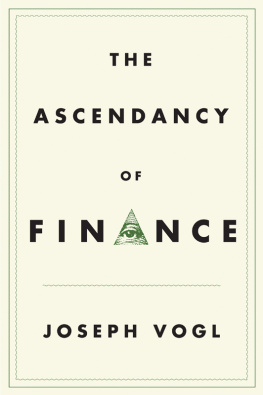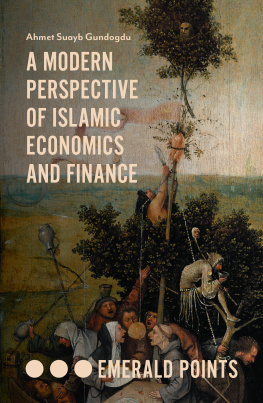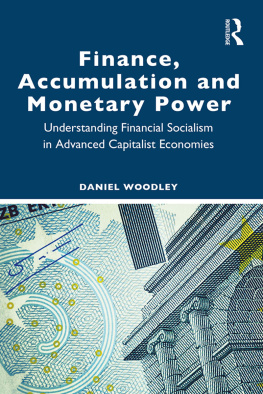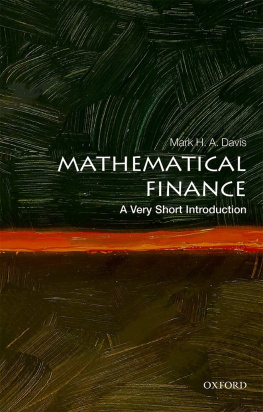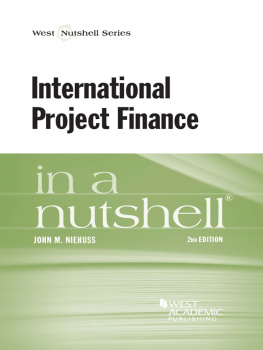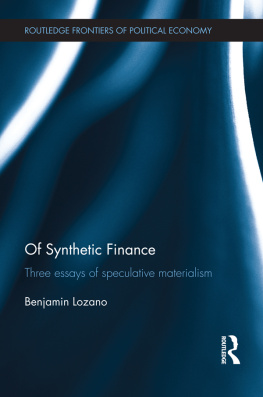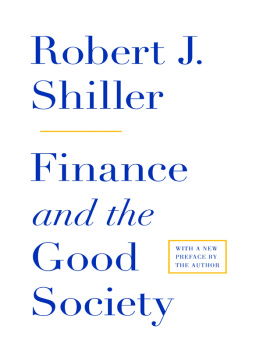
Copyright page
First published in German as Der Souvernittseffekt diaphanes, Zrich-Berlin, 2015. All rights reserved.
This English edition Polity Press, 2017
Polity Press
65 Bridge Street
Cambridge CB2 1UR, UK
Polity Press
350 Main Street
Malden, MA 02148, USA
All rights reserved. Except for the quotation of short passages for the purpose of criticism and review, no part of this publication may be reproduced, stored in a retrieval system or transmitted, in any form or by any means, electronic, mechanical, photocopying, recording or otherwise, without the prior permission of the publisher.
ISBN-13: 978-1-5095-0929-4
ISBN-13: 978-1-5095-0930-0 (pb)
A catalogue record for this book is available from the British Library.
The ascendancy of finance
Library of Congress Cataloging in Publication Control Number: 2016052458
Typeset in 10.5 on 12 pt Sabon by Toppan Best-set Premedia Limited
Printed and bound in the UK by CPI Group (UK) Ltd, Croydon
The publisher has used its best endeavours to ensure that the URLs for external websites referred to in this book are correct and active at the time of going to press. However, the publisher has no responsibility for the websites and can make no guarantee that a site will remain live or that the content is or will remain appropriate.
Every effort has been made to trace all copyright holders, but if any have been inadvertently overlooked the publisher will be pleased to include any necessary credits in any subsequent reprint or edition.
For further information on Polity, visit our website: politybooks.com
Preface
Economic crises are opportunities for making the politically impossible politically inevitable. This was certainly true for the recent dramas on the financial markets, which have led to a style of government whose methods and centres of command are distributed across public organs, international organizations, central banks and private corporations. Government has been usurped by expert committees, ad hoc bodies and informal consortia of political and economic actors; operating in a grey zone between economics and politics, their politics of emergency is legitimated solely by exigency and exceptionality.
Yet the situation is by no means new. The dynamics of modern financial capitalism are defined less by a dichotomy between states and markets than by a co-evolution of the two, throughout which mutually reinforcing dependencies became established. From the bourgeois financiers of royal budgets, through central banks and public credit to the current regime of finance, reserves of sovereignty have emerged with an order and quality of their own. Modernity has not only produced state bureaucracies, international corporations, powerful financial industries and decentralized markets; it has also fashioned a specific type of power that plays an autonomous role in the praxis of government. This power cannot be described only in terms of political structures or economic operations; instead, the interaction between both poles needs to be considered. This approach undermines, annuls or reduces the importance of the supposed antagonism between political authority and capital.
The workings and history of this power are the subject of this historical-speculative essay. Its thesis is that modern finance represents a concentration of decision-making power that acts in parallel to national sovereignty, bypassing democratic procedures. Over the past three centuries, finance has become a fourth power in which the power of capital is inseparable from the activation of power's capital. The contemporary dominance of the financial regime is therefore seen as the latest phase in an economization of government, a process manifesting itself in an aggressive symbiosis between political structures and private capital, an effective coupling of market and might. The notorious opposition between economics and politics emerges as a liberal myth unable to grasp the genesis and form of modern power.
This premise governs the sequence of the following chapters. All deal with arenas of political-economic zones of indeterminacy associated with the evolution of modern political structures and economic systems. An analysis of the character of the international politics of crisis and emergency since 2008 (). Sovereign rights of money creation and liquidity control migrated to the financial sphere, dictating a situation in which strategies of private enrichment impact on the fate of national economies and societies via effects of sovereignty.
Functional Dedifferentiation
The Autumn of Finance
America, four days in autumn 2008. On the morning of Friday 12 September, the New York investment bank Lehman Brothers found itself facing bankruptcy, triggering a rapid series of emergency meetings between the American and British governments, the heads of central banks, large international banks and private investors. In March, the investment bank Bear Stearns had been forced to merge with JPMorgan Chase & Co., the deal secured by a state loan of $29 billion. Having bailed out the mortgage banks Fannie Mae and Freddie Mac with $140 billion in the summer, the US treasury secretary Henry Paulson now ruled out freeing up yet more taxpayers money for Lehman Brothers. On Friday evening, in the conference rooms of the Federal Reserve Bank of New York, representatives of US and European banks including Bank of America, Goldman Sachs, Morgan Stanley, Citigroup, Barclays, Credit Suisse, Deutsche Bank and BNP Paribas were told that a private sector solution would be necessary. Various investors would be involved, the risks shared. Bank of America, based in North Carolina, and Barclays of London both expressed interest. The insurance company American International Group (AIG) was now also reporting liquidity problems, and by the morning of Saturday 13 September it was apparent that, as one bank manager put it, the wellbeing of the global financial system was at risk. The equally troubled investment bank Merrill Lynch was also seeking additional capital investment, fearing that a bailout of Lehman would defer the crisis to the next weak point in the system. After short and secret negotiations, Bank of America took over Merrill Lynch in the hope of gaining entry to the international investment sector. A bailout of Lehman Brothers was now off the cards.
Over the course of the Saturday, it emerged that the losses from Lehman were more drastic and the liquidity problems of AIG far greater than had been assumed. Barclays efforts to take over Lehman had also run aground. The bank had tabled a plausible finance plan, but before going ahead was required under British law to obtain the consent of its shareholders. Until then, it needed a financial guarantee of up to $60 billion, which no private investor was willing to put up. Time was short before the start of trading on Monday morning. In a series of telephone calls on Sunday 14 September between the US Department of the Treasury, the New York Federal Reserve, Barclays, the British chancellor of the exchequer and the British Financial Services Authority, it emerged that London was insisting on the consent of the Barclays shareholders, and would not approve a deal without a full financial guarantee. While London was pressing for a clear go-ahead from the US side, the Americans felt that they had not yet received a solid and unequivocal offer. At around midday, the Barclays option fell through. The US government and the Federal Reserve ruled out releasing more capital and, hoping that under the circumstances the financial markets would be prepared for the event, allowed Lehman Brothers to go bankrupt in the early hours of Monday 15 September 2008. Banks are always rescued at the weekend. Or not.
Next page
